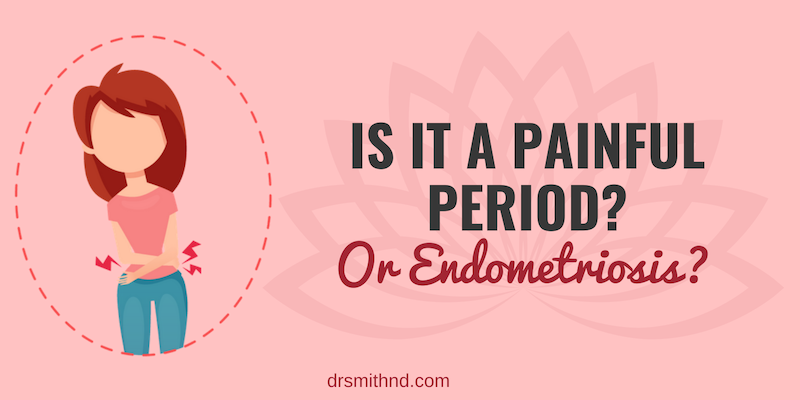When it comes to their period, most women know that some mild pain can be normal. But what if the pain you’re experiencing is extreme? What if, for a couple of days every month, you are crippled with an excruciating sensation that leaves you struggling to get out of bed, or even worse, vomiting?
If that is the case, you could be experiencing something way beyond normal period pain and may be suffering from a condition known as endometriosis.
What is Endometriosis?
Endometriosis typically occurs in women of reproductive age and effects 5-10% of women. It is a painful disorder that arises when the tissue that lines the inside of the uterus (aka the endometrial tissue) starts growing outside of the uterus. When this happens, the tissue becomes inflamed and causes a world of pain for women.
This pain is exacerbated during menstruation, as the endometrial tissue growing outside of the uterus tries to do exactly what it would if it were inside: it thickens, breaks down, and tries to bleed away. But because this occurs outside of the uterus, the tissue cannot exit the body during menstruation, becoming trapped and putting even more pressure on the nerves that line the outside of the uterus.
This can cause extreme pain that may have some women wondering if what they are experiencing is normal.
What Causes Endometriosis?
Researchers are still trying to figure out exactly what causes endometriosis. So far, they have a number of theories regarding factors that may contribute to the development of this painful condition, a few of which are linked to hormonal imbalances caused by high estrogen levels.
These factors include:
- Retrograde menstruation – where menstrual blood reluxes back through the fallopian tubes and into the pelvic cavity
- Metaplasia – changing one type of tissue to another
- Transportation of endometrial cells into the outside of the uterus through blood vessels
- Immunologic – inflammatory products are out of control, autoimmunity
- Slow liver detoxification of estrogen or pollutants that mimic estrogen – research shows specific toxins can be a major contributor**
- Nutrition – diary and meat products
- Genetic factors – women with first degree relatives with endometriosis are predisposed to have the disease
How do I know if I have Endometriosis?
If you experience extreme pain during menstruation that gets worse over the years and prevents you from living a normal life, you may be suffering from endometriosis. The gold standard for diagnosis is laparoscopy which is a surgical procedure where a scope with a lens and light is inserted via the abdominal wall (tiny incision) to visualize what is going on and to look for the displaced tissue. This is done by a gynecologist.
Symptoms of endometriosis include but are not limited to:
- Severe pelvic pain during menstruation
- Pelvic pain
- Back pain and lower abdominal pain during menstruation
- Pain with exercise
- Pain with intercourse
- Difficulty conceiving
- Painful urination and painful bowel movements
If you are experiencing one or all of these symptoms you should consider booking an appointment with a naturopathic doctor to discuss assessment for an endometriosis diagnosis and learn about natural treatment options that may reduce your pain.
Natural Treatments for Endometriosis
As you know by now, my first strategy is to use nutrition and lifestyle as the foundation for treating hormonal conditions. Alcohol, food, toxins, exercise and stress play a HUGE role in impacting hormones so this foundational approach tends to take pressure off of my patient’s systems so that I can see what else remains and accurately assess how to treat it.
Ultimately naturopathic medicine has various useful ways to help reduce the pain, so it is well worth pursuing. In practicing personalized medicine, I use a unique approach with each patient that may include botanical medicine (herbs), supplements and possibly bioidentical hormone replacement therapy to get hormonal balance restored in my patients.
The end goal for me – always- is to coach my patients to get their lifestyle dialled up to the point that they require fewer supplements and medicines, and learn how to manage menstrual pain through changes in their day-to-day lives.
Consulting with Dr. Smith
If you are experiencing severe menstrual pain that you suspect may be linked to endometriosis, consider booking a consultation with me. I will take your history and properly ascertain whether it makes sense to assess for endometriosis, or if your period pain may be caused by other issues.



